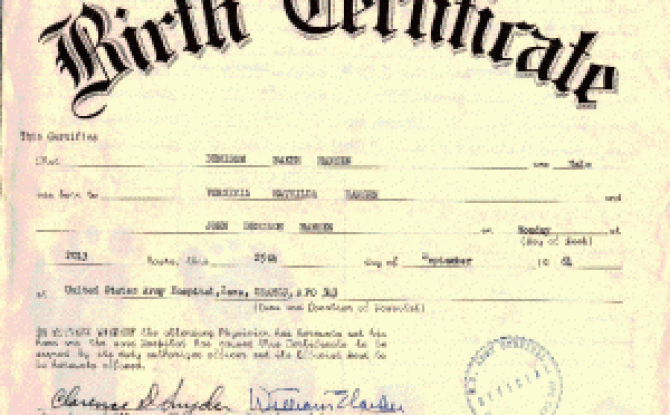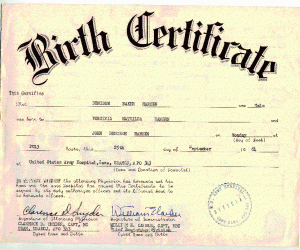
Arkansas’ Cautionary Birth Certificate Tale

Arkansas’ Cautionary Birth Certificate Tale
It’s been a bumpy week for same-sex parents in Arkansas trying to both get on a child’s birth certificate —but there’s an important lesson in the case for same-sex parents in all states.
A week ago, a Pulaski County circuit judge ruled that the U.S. Supreme Court decision that legalized marriage for same-sex couples means that same-sex parents in Arkansas may have both their names put on the birth certificates of children born during their marriages. The state Department of Health, however, initially refused to do so, unsure if the ruling applied beyond the three plaintiffs, and slowed by Attorney General Leslie Rutledge’s advice not to issue amended birth certificates because she planned to appeal. The Department of Health, to their credit, seems to be issuing them anyway.
One important takeaway from all this, though, is found in Judge Tim Fox’s ruling, where he says, “Today’s decision affords the plaintiffs, as same-sex couples, the same constitutional rights with respect to the issuance of birth certificates and amended birth certificates as opposite-sex couples. That is the sum total of the legal effect of this decision.”
Those “same constitutional rights,” however, may be more limited than one might think. Fox notes that the plaintiffs list eight examples of how the lack of both same-sex parents on a birth certificate may impact their legal relationship to their children, including identification procedures for Social Security numbers and passports; denial of rights related to medical care, school-related activities, governmental- or employment-related benefits, survivor benefits, and inheritance; as well as disruption of the parent-child relationship and the award of child support in the event of parental divorce. But, he warns (my bold):
The court’s declaration today does not conclusively resolve any of those legal issues. It may create equitable and legal arguments for resolution of issues that involve only the two spouses of the same sex-marriage, such as child support or child custody. It does not in any manner resolve the multitude of legal issues that may arise involving third parties. Biological parents, mother or father, whose statutory and/or common law rights may not have been properly terminated, whether through an adoption proceeding or by the signature of surrogacy documents, are not bound by the listing of two names on a birth certificate. Other heirs claiming against a same-sex spouse estate, or attempting to disallow a minor child’s interest in the estate of one of the same-sex spouses, are not bound by an amended birth certificate. Insurance companies—life, health, or casualty—may decide in order to prevent potential duplication of claims, or liabilities not actuarially considered in premium calculations, to change their contract language to exclude birth certificates as indicia of acceptable legal relationship, and may require other documentation such as adoption decrees. In the future, government benefits, both state and federal, may key off of legal documentation other than a birth certificate. Today’s decision does not legally resolve any of those potential issues.
Click here to read the entire article.
by Mombian.com, December 8, 2015
